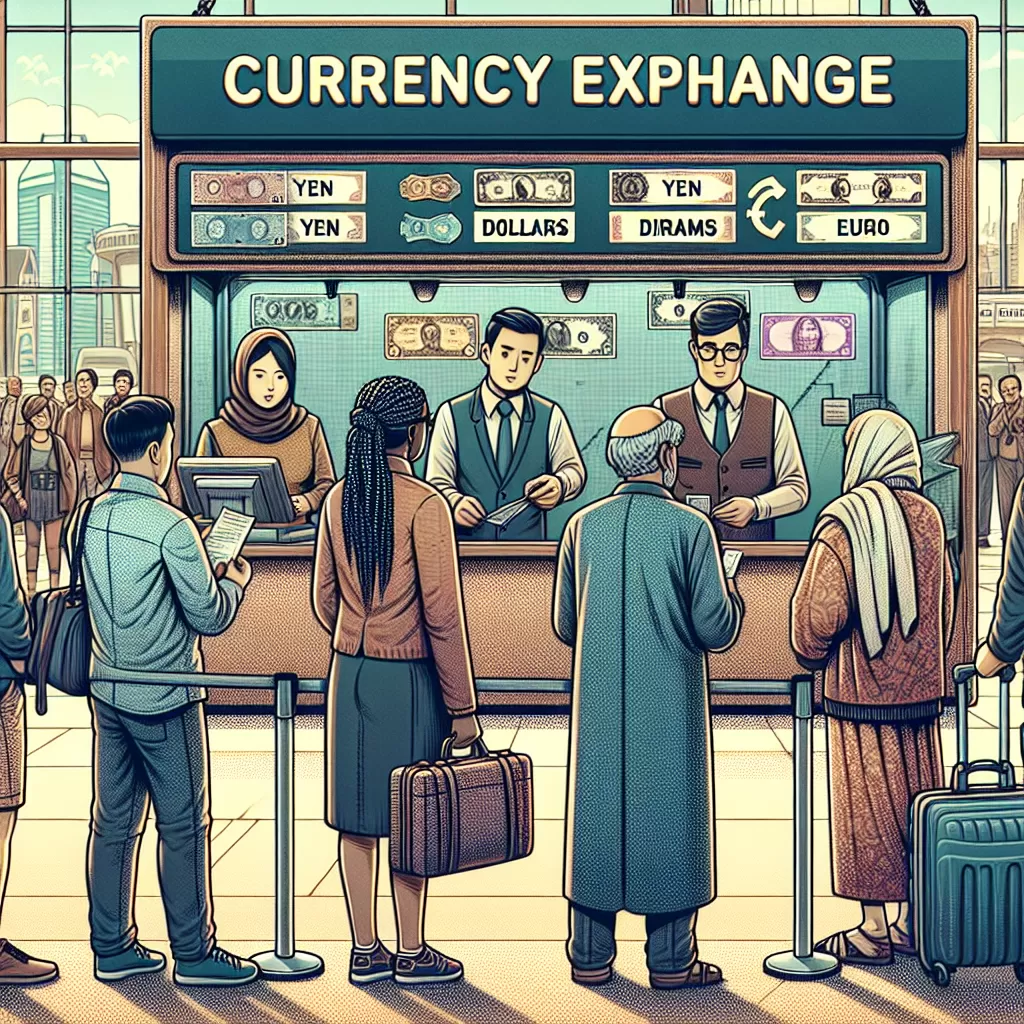Where Can We Exchange Currency
Follow Currency Mart April 10, 2024
Where to purchase Foreign Currencies?

Introduction
Navigating through the labyrinth of currency exchange can be a daunting task, especially for those who are unacquainted with the terrain. However, with the right guidance one can find the right paths to take to ensure a successful exchange. This article attempts to demystify this process and offers various options where one could exchange currency effectively.Traditional Banks
In the roster of methods to exchange money, traditional banks are typically at the top of our mental lists. They offer reliable and secure methods to exchange currency, whether you're buying or selling. Most banks offer both customer and non-customer services, allowing for a broad base of users. However, their exchange rates might not always be the best in the market, and they often charge transaction or service fees which may affect the net amount exchanged.Online Exchange Platforms
The rise of the digital age has also seen the birth of online currency exchange platforms. Companies such as Revolut, Wise and CurrencyFair offer a mobile-friendly and quick method to exchange currency. These platforms also offer competitive exchange rates, often better than traditional banks. They are a great option if you have access to online banking and a need for quick 24/7 service, though it's essential to ensure the safety of any online option.Currency Exchange Bureaus
Currency exchange bureaus like Travelex and ICE (International Currency Exchange) are physical institutions specifically targeting currency exchanges. Often located in airports and city centers, these bureaus are especially convenient for travelers. While their service is comprehensive and true round-the-clock, it's worth noting that their exchange rates and transaction fees can be higher compared to other alternatives.Credit and Debit Cards
Using your credit or debit card directly for transactions in foreign currency can be another option to consider. While convenient for travel, they may have additional fees for foreign transactions. It's recommended to inquire about the exchange rates and any potential foreign transaction fees from your bank before using this option.Peer-to-Peer Exchange
A relatively newer, yet increasingly popular, method is the peer-to-peer (P2P) currency exchange. This could be through a trusted personal network or P2P platforms. In this method, two parties agree to exchange their respective currencies directly without the need for banks or institutions. This allows for a great rate, typically the true mid-market rate, and the cutting out of transaction fees.Post Offices
In some regions, local post offices offer currency exchange services. While not their main function, they might offer competitive rates and reliability. However, it typically requires more time as they don't offer on-the-spot currency exchange.Conclusion
In the ever-churning world of currency exchange, with values fluctuating and rates shifting, it's important to consider all available options before deciding where to exchange your currency. Whether through traditional banks, online platforms, peer-to-peer exchanges, or another avenue, make sure to research thoroughly about the rates, fees, and guarantees to ensure the best deal for your needs.
Where to purchase Foreign Currencies?